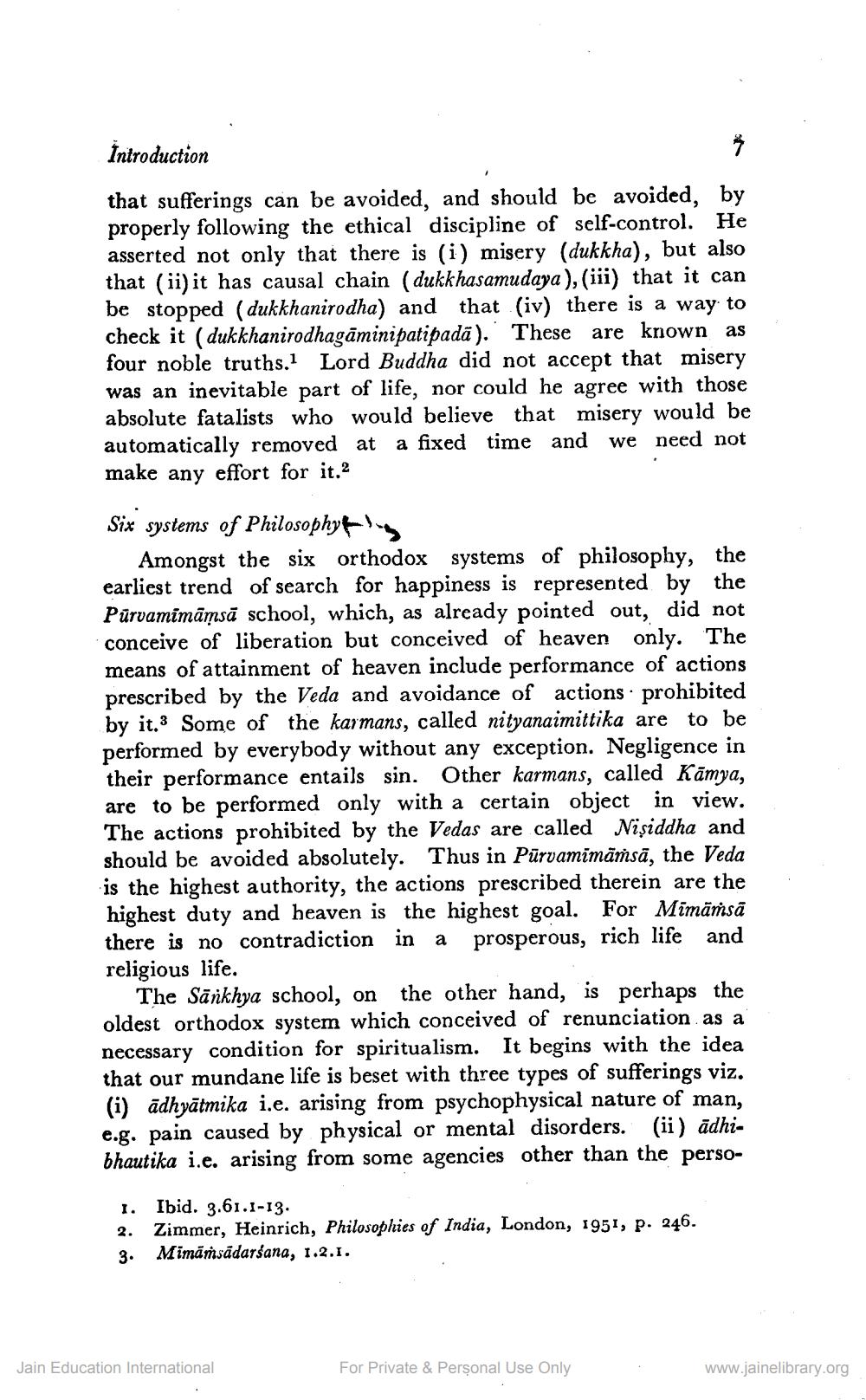________________
*
Introduction
that sufferings can be avoided, and should be avoided, by properly following the ethical discipline of self-control. He asserted not only that there is (i) misery (dukkha), but also that (ii) it has causal chain (dukkhasamudaya), (iii) that it can be stopped (dukkhanirodha) and that (iv) there is a way to check it (dukkhanirodhagāminipatipada). These are known as four noble truths.1 Lord Buddha did not accept that misery was an inevitable part of life, nor could he agree with those absolute fatalists who would believe that misery would be automatically removed at a fixed time and we need not make any effort for it.2
Six systems of Philosophy
Amongst the six orthodox systems of philosophy, the earliest trend of search for happiness is represented by the Pūrvamīmāmsā school, which, as already pointed out, did not conceive of liberation but conceived of heaven only. The means of attainment of heaven include performance of actions prescribed by the Veda and avoidance of actions prohibited by it. Some of the karmans, called nityanaimittika are to be performed by everybody without any exception. Negligence in their performance entails sin. Other karmans, called Kamya, are to be performed only with a certain object in view. The actions prohibited by the Vedas are called Nişiddha and should be avoided absolutely. Thus in Pūrvamīmāmsā, the Veda is the highest authority, the actions prescribed therein are the highest duty and heaven is the highest goal. For Mimāṁsā there is no contradiction in a prosperous, rich life and religious life.
The Sankhya school, on the other hand, is perhaps the oldest orthodox system which conceived of renunciation as a necessary condition for spiritualism. It begins with the idea that our mundane life is beset with three types of sufferings viz. (i) adhyatmika i.e. arising from psychophysical nature of man, e.g. pain caused by physical or mental disorders. (ii) adhibhautika i.e. arising from some agencies other than the perso
I. Ibid. 3.61.1-13.
2. Zimmer, Heinrich, Philosophies of India, London, 1951, p. 246.
3.
Mīmāmsādarśana, 1.2.1.
Jain Education International
For Private & Personal Use Only
www.jainelibrary.org




